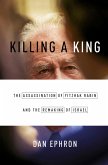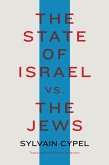In this authoritative text, Arno J. Mayer traces the thinkers, leaders and shifting geopolitical contexts that shaped the founding and onward development of the Israeli state. He recovers for posterity internal critics such as the philosopher Martin Buber who argued for peaceful coexistence with the Palestinian Arabs. 'A sense of limits is the better part of valour', Mayer insists. Plowshares into Swords explores Israeli's indefinite deferral of the 'Arab Question', the strategic thinking behind its settlement building and border walls, and the endurance of Palestinian resistance.
Dieser Download kann aus rechtlichen Gründen nur mit Rechnungsadresse in A, D ausgeliefert werden.









